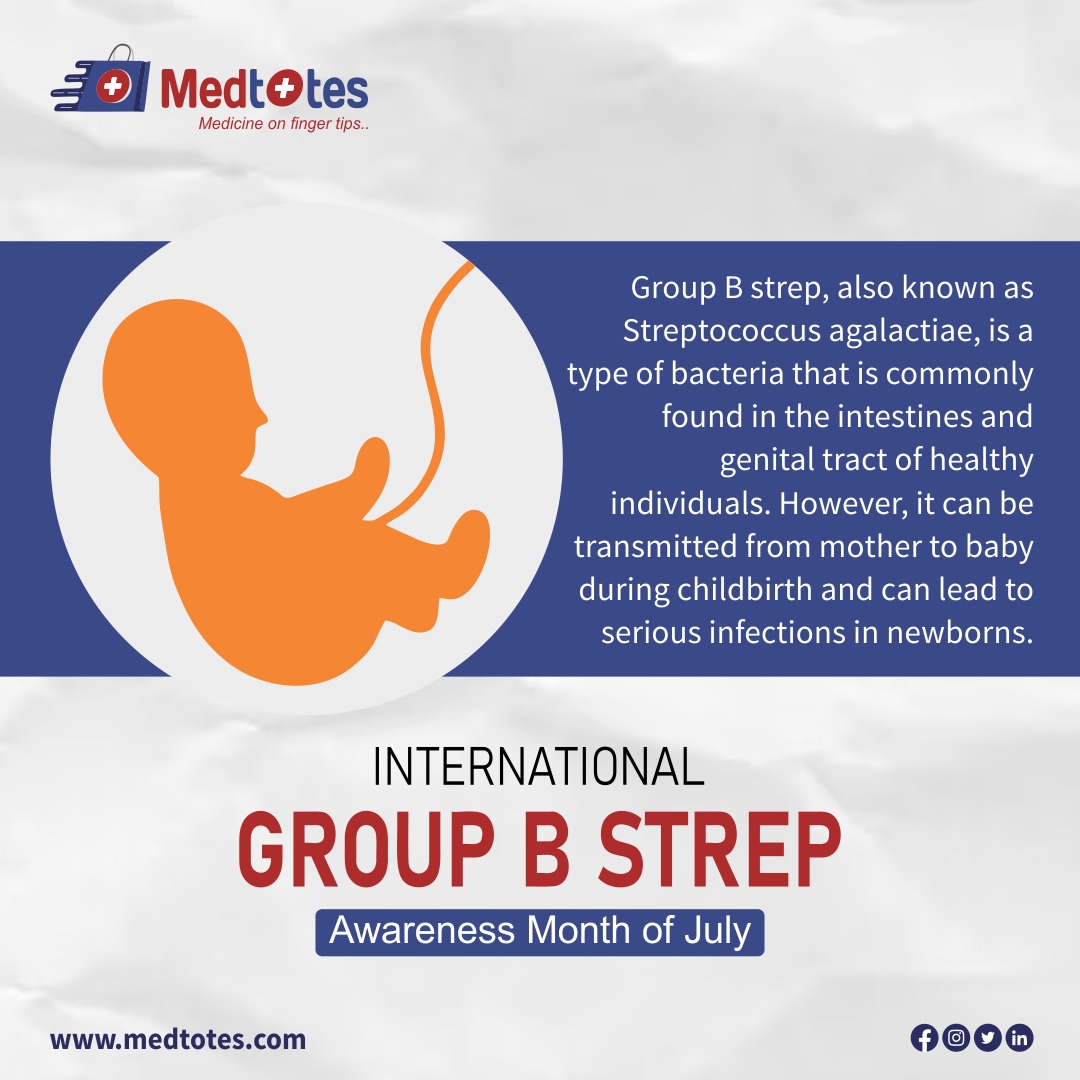- What is Group B strep?
Group B streptococcus (GBS) is a type of bacteria that commonly resides in the gastrointestinal and genital tracts of healthy individuals, including pregnant women. GBS is not usually harmful to adults; however, it can pose serious risks for newborn babies if transmitted from mother to child during childbirth. The transmission of GBS to newborns can lead to various health complications such as sepsis (blood infection), pneumonia, meningitis, and even death. It is estimated that around 25% of healthy adults carry GBS in their bodies without experiencing any symptoms or health issues.
2. Importance of raising awareness about GBS during July
GBS, or Guillain-Barré Syndrome, is a rare neurological disorder that can cause muscle weakness and paralysis. Raising awareness about GBS during July is crucial, as it is recognised as GBS Awareness Month. This initiative aims to educate the public about the symptoms, risk factors, and available treatments for GBS, helping individuals recognise the signs early on and seek appropriate medical attention. Additionally, raising awareness can also promote support for ongoing research efforts and provide a platform for those affected by GBS
3. How to prevent Group B strep infections?
Preventing Group B strep infections can be achieved through various measures. One important step is for pregnant women to get tested for Group B strep during their third trimester. If the test results are positive, the woman can receive antibiotics during labour to reduce the risk of transmitting the infection to the baby. Furthermore, practicing good hygiene, such as regularly washing hands and avoiding close contact with sick people, can help reduce the spread of Group B strep bacteria.
4. Conclusion:
In conclusion, raising awareness about Group B strep is crucial in order to prevent its transmission and potential harm to newborns. By educating pregnant women and healthcare providers about the importance of screening, early detection, and appropriate treatment, we can significantly reduce the incidence of Group B strep infections in infants. Additionally, continued research and development of effective prevention strategies will be essential in further improving outcomes for both mothers and babies affected by this bacterium.
For More Information or Contact…!!!
𝗖𝗔𝗟𝗟: 040 35159159
WhatsApp: 7075490607
𝗩𝗶𝘀𝗶𝘁: https://www.medtotes.com/
Drop us an email at:- support@medtotes.com
Download app:
Android: https://bit.ly/3Q3gQw8
iOS: https://apple.co/3nknQIm

